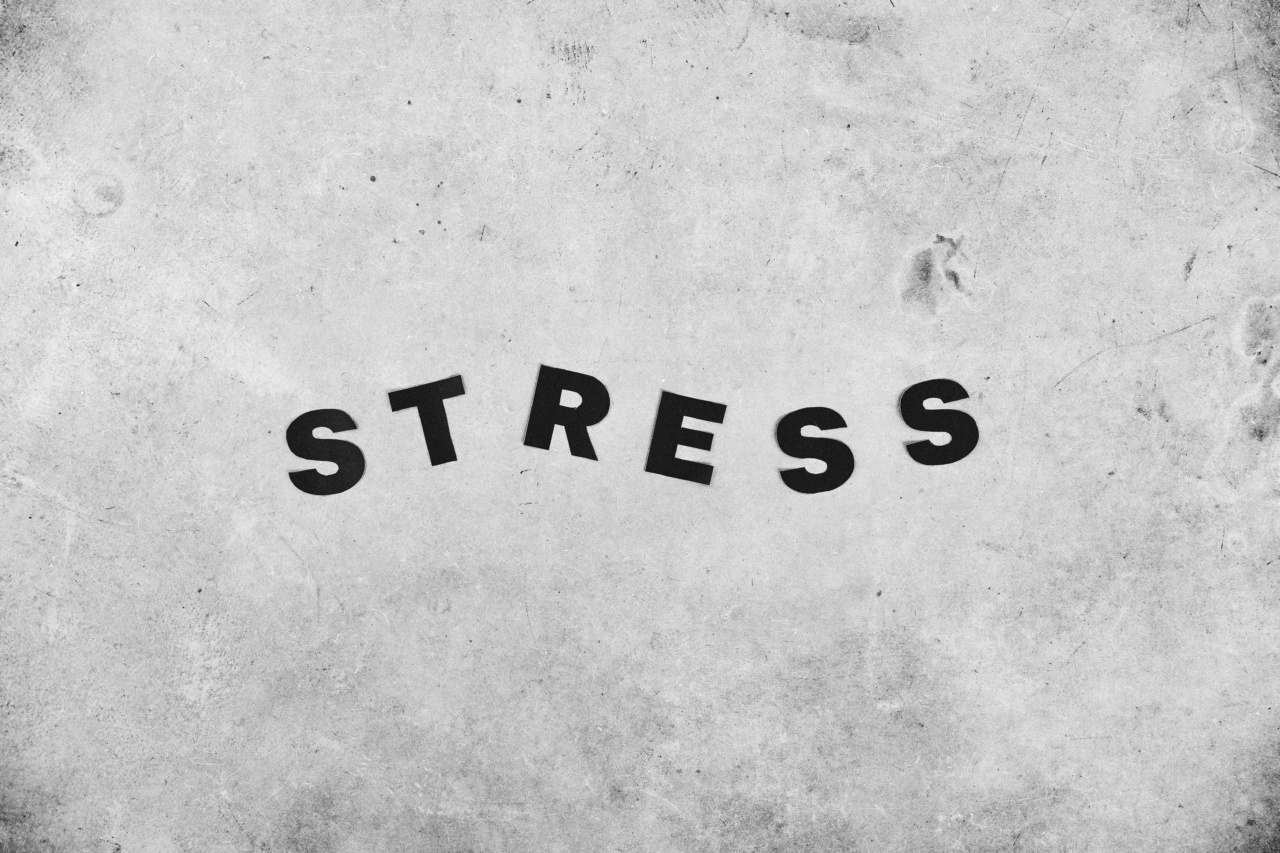Stress can have a significant impact on our lives, including our diets. It often leads to emotional eating, inconsistent meal patterns, and cravings for unhealthy foods. Managing stress is crucial for maintaining a healthy diet and overall well-being.
In this article, we will explore five simple solutions to help you combat stress and prevent it from sabotaging your diet.
1. Practice Mindful Eating
Mindful eating is the practice of paying attention to the present moment while eating. Many of us tend to eat quickly and mindlessly, especially when stressed. This can lead to overeating and poor food choices.
By practicing mindful eating, you can become more aware of your body’s hunger and fullness cues, making it easier to make healthier choices.
Here are some tips for practicing mindful eating:.
- Eat slowly and savor each bite.
- Chew your food thoroughly.
- Pay attention to the taste, texture, and aroma of your food.
- Put away distractions like your phone or TV while eating.
- Listen to your body and stop eating when you feel satisfied, not stuffed.
2. Incorporate Stress-Reducing Foods
Some foods have stress-reducing properties that can help calm your mind and body. Including these foods in your diet can contribute to better stress management. Here are a few stress-reducing foods to consider:.
- Green leafy vegetables: These are rich in magnesium, which helps regulate cortisol, a hormone associated with stress.
- Fatty fish: Fish like salmon, mackerel, and sardines are high in omega-3 fatty acids, which have been shown to reduce stress and anxiety.
- Avocados: Avocados are a great source of healthy fats that can help stabilize blood sugar levels and promote a sense of calmness.
- Blueberries: Rich in antioxidants, blueberries can help combat the oxidative stress caused by chronic stress.
- Dark chocolate: Dark chocolate contains compounds that can improve mood and reduce stress.
By incorporating these stress-reducing foods into your diet, you can support your body’s ability to handle stress more effectively and reduce its impact on your eating habits.
3. Plan Ahead and Meal Prep
A lack of time and poor planning can often lead to unhealthy food choices. When we’re stressed, it becomes even more challenging to make healthy decisions on the spot. That’s why planning ahead and meal prepping can be incredibly helpful.
Set aside some time each week to plan your meals and snacks. Create a grocery list and ensure you have all the necessary ingredients. When possible, dedicate a few hours to prepare meals in advance.
This way, when stress arises, you’ll have healthy, pre-made options readily available, reducing the temptation to reach for convenient but unhealthy alternatives.
4. Find Stress-Relieving Activities
Engaging in stress-relieving activities is essential for managing stress and preventing it from negatively impacting your diet. Different activities work for different people, so it’s important to find what works best for you. Here are some ideas:.
- Exercise: Physical activity releases endorphins, which are natural stress-fighting chemicals. Find an exercise routine you enjoy, whether it’s jogging, yoga, or dancing.
- Meditation: Practicing meditation can help calm your mind and reduce stress levels. Consider incorporating short meditation sessions into your daily routine.
- Journaling: Writing down your thoughts and feelings can help you process stress and gain perspective. Set aside some time each day to reflect on your day.
- Hobbies: Engaging in activities you enjoy, such as painting, gardening, or playing a musical instrument, can provide a much-needed break from stress.
- Spending time in nature: Being in nature has a calming effect on the mind and body. Take a walk in a park or spend time gardening.
Finding stress-relieving activities that resonate with you will not only help manage stress but also reduce the likelihood of turning to food for comfort during stressful times.
5. Seek Support
When stress becomes overwhelming, seeking support from others can make a significant difference. Reach out to friends, family, or a professional counselor who can provide guidance and a listening ear.
They may offer valuable insights and help you navigate through stressful situations without resorting to stress-induced eating.
Additionally, joining a support group or seeking out an online community of individuals facing similar challenges can provide a sense of belonging and understanding.
Sharing experiences and learning from others can help you develop healthier coping mechanisms and reduce stress’s impact on your diet.
Conclusion
Stress and diet are closely intertwined. Stress can easily sabotage your diet and lead to unhealthy habits.
However, with mindful eating, stress-reducing foods, meal planning, stress-relieving activities, and support, you can take control of stress and maintain a healthy diet.






























